Five challenges for the Met's new chief
- Published
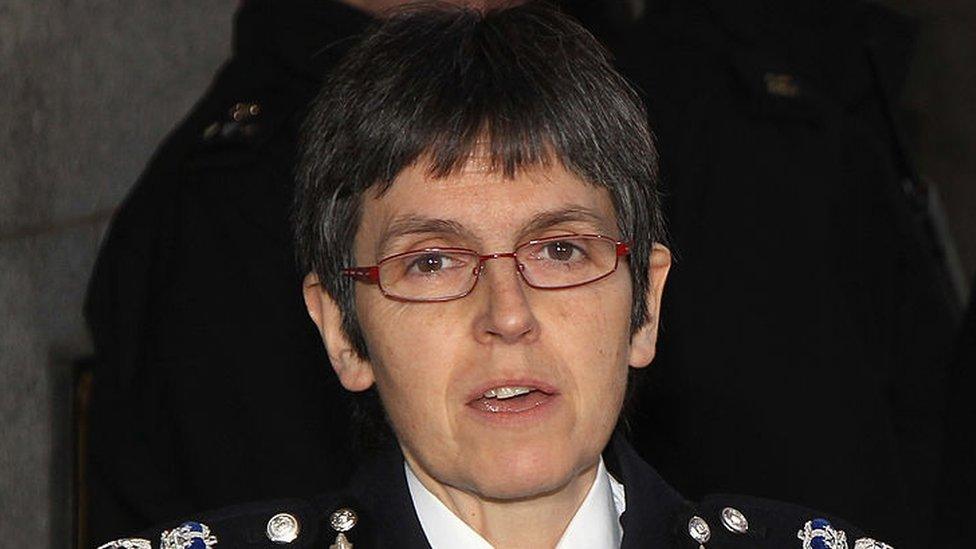
When the Metropolitan Police Service's newly appointed commissioner, Cressida Dick, begins work at the force's impressive new headquarters on the Embankment, she might like to take a moment to admire the view overlooking the River Thames. But only a moment. Ms Dick won't have time for much more than that.
The new commissioner will find that when it comes to leading the Met, there's no off-switch. It's a policing organisation like no other in the UK, with a budget of £3bn, a workforce of 43,000 and responsibility for keeping everyone in London - from Barking to Buckingham Palace, from West Norwood to Westminster - safe.
The leader of Britain's biggest and most influential police force will come under pressure to make early decisions: on whether to roll out controversial spit-guards, on how to police the Notting Hill Carnival and if Tasers should be extended to all officers.
She'll face intense scrutiny from the media, which has a tendency to escalate stories of local difficulties into ones of national importance. And she'll be expected to provide regular updates to the London Assembly, MPs on the home affairs committee, the mayor of London and the home secretary.
For Ms Dick there's also an added dimension: the need to stamp her authority on a police force that for over five years has bent to the will of Sir Bernard Hogan-Howe, whose no-nonsense style was respected but not universally liked.
Indeed, Sir Bernard's retirement may tempt officers who didn't always agree with him to speak out, to adopt a different approach, to do things their own way. And that could spell trouble for Cressida Dick as she sets out to make her mark.
Training more firearms officers
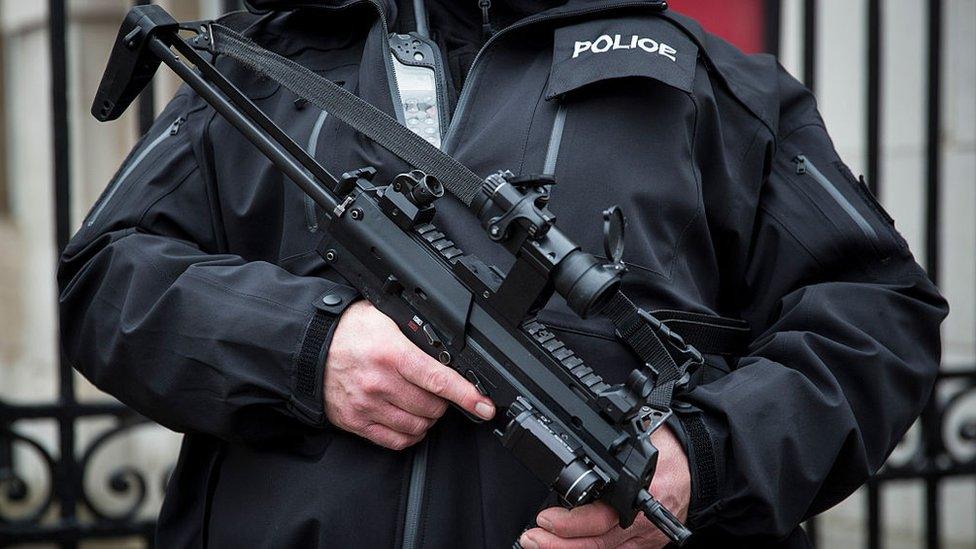
One of the key issues the new commissioner will have to grapple with is how to shore up the confidence of firearms officers. In Sir Bernard's final major speech last week, he said there was a "very shallow pool" of people wanting to do the job partly because they were increasingly "portrayed as suspects" when someone was shot.
The problems may come to a head within weeks, when the Crown Prosecution Service (CPS) decides whether or not to charge a policeman over the death of Jermaine Baker in Wood Green in December 2015.
The officer who fired the fatal shot was arrested, interviewed under criminal caution and bailed by police pending the CPS decision, which is seen as pivotal in the Met's efforts to recruit 600 more specialist armed officers.
The move to boost police firearms capacity was sparked by concerns about the threat from terrorism - in particular, the possibility of a marauding gun attack.
Dealing with political turbulence
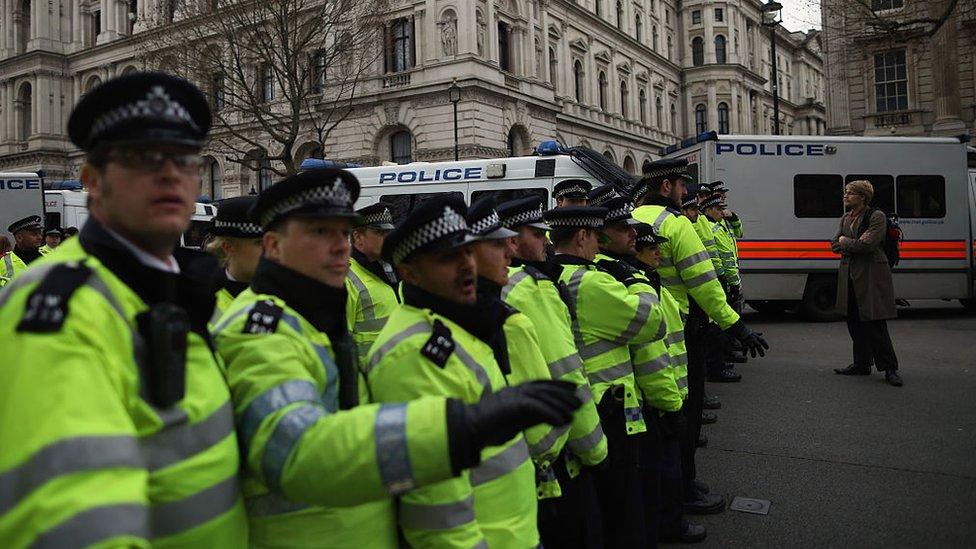
For Ms Dick, who will have national responsibility for counter-terrorism as well as for protecting London, a complicating factor in the security picture is the political turbulence caused by the election in the US of Donald Trump - and Brexit.
The result of the EU referendum sparked a rise in hate crime which police will need to remain on the alert for, while Britain's departure from the EU means the Met and other forces will have to forge new relationships over law enforcement with their European counterparts.
As for President Trump, his state visit to the UK, expected to be this year, will present the commissioner with a huge policing challenge. Protests have already taken place in London and are likely to continue, sometimes at very short notice.
Tackling rise in violent crime
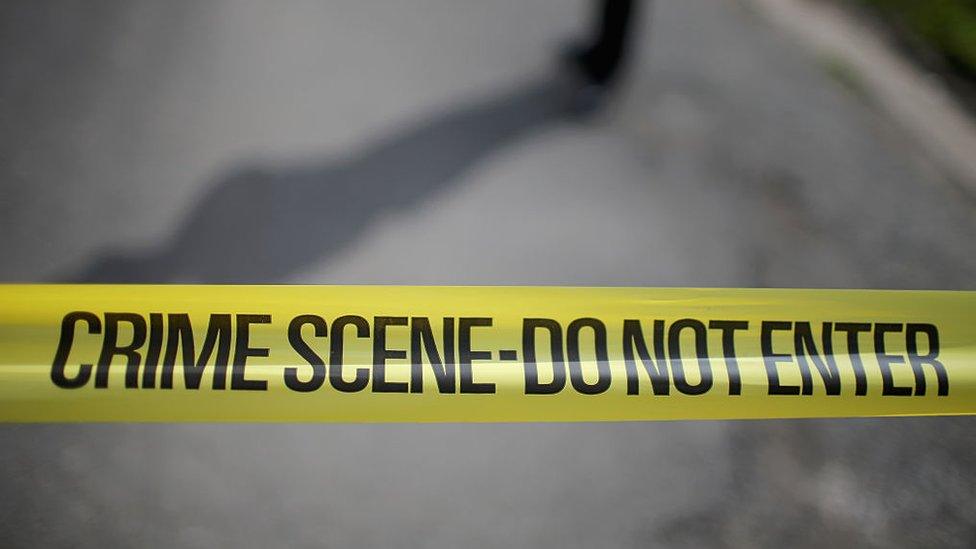
Many commissioners judge their success in terms of crime. Has it gone up or down? Since the mid-1990s the overall trend has been downwards, due mainly to large falls in acquisitive crimes such as car theft and burglary.
For the past three years, however, offences recorded by the Met Police have been on the increase. In 2016, there were 761,998 crimes, 3.5% up on the year before, prompting Sir Bernard Hogan-Howe to remark that the "warning lights are flashing".
Although the rise in crimes such as sexual offences and domestic abuse is driven by a greater willingness on the part of victims to come forward, what'll most worry the new incumbent are the year-on-year increases of 6% in violence, 17% in knife crime and 22% in firearms offences. Understanding what's behind this apparent upsurge and finding ways to tackle it will be a priority for the commissioner.
Making a difference while cutting costs
Her task will undoubtedly be made harder by the tough financial climate. Over the past six years the Met has saved about £600m on its annual budget, chiefly by selling police buildings and cutting civilian staff posts.
Making further cutbacks - which Sir Bernard and Sadiq Khan, London's mayor, both anticipate if the government changes the way constabularies are funded in England and Wales - are almost certain to entail a reduction in the number of officers. So far, that's been avoided, with 32,000 currently in post.
Keeping right numbers to do the job
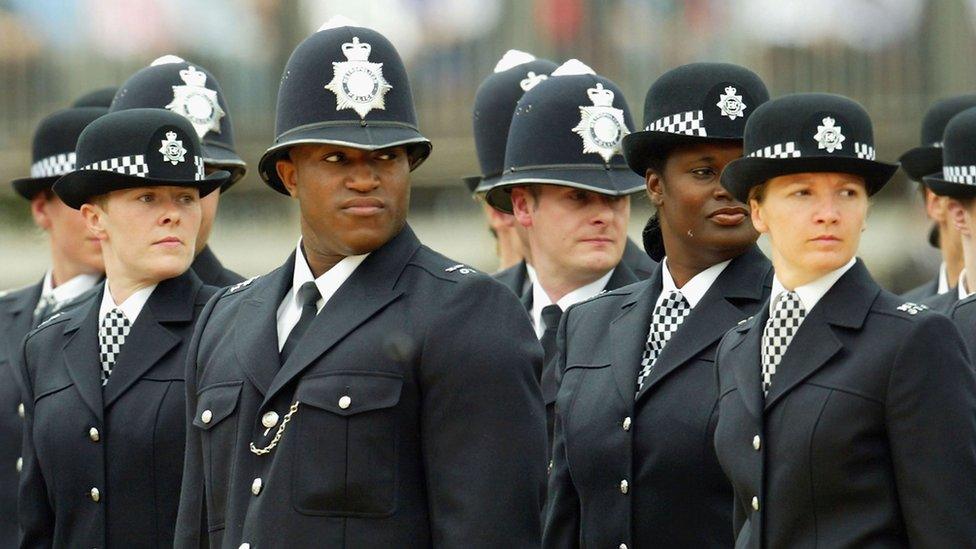
Over the past few months, the outgoing Met commissioner has issued a number of warnings about the impact of cutting officers in a city whose population is becoming bigger and more diverse.
If recruitment slows or freezes, efforts to broaden the ethnic mix of the force so it better reflects the people of London will grind to a halt
At present 13% of officers are black, Asian or from a minority ethnic background, compared to 40% of those living in the capital.
The issue of officer numbers and possible budget cuts is likely to be the biggest and most immediate political challenge facing Sir Bernard Hogan-Howe's replacement.
Will she be as bold in confronting the problem as he's been? Or will she take a more diplomatic approach?
However calm the Thames may look from her vantage point in New Scotland Yard, Cressida Dick will know that choppy waters lie ahead.